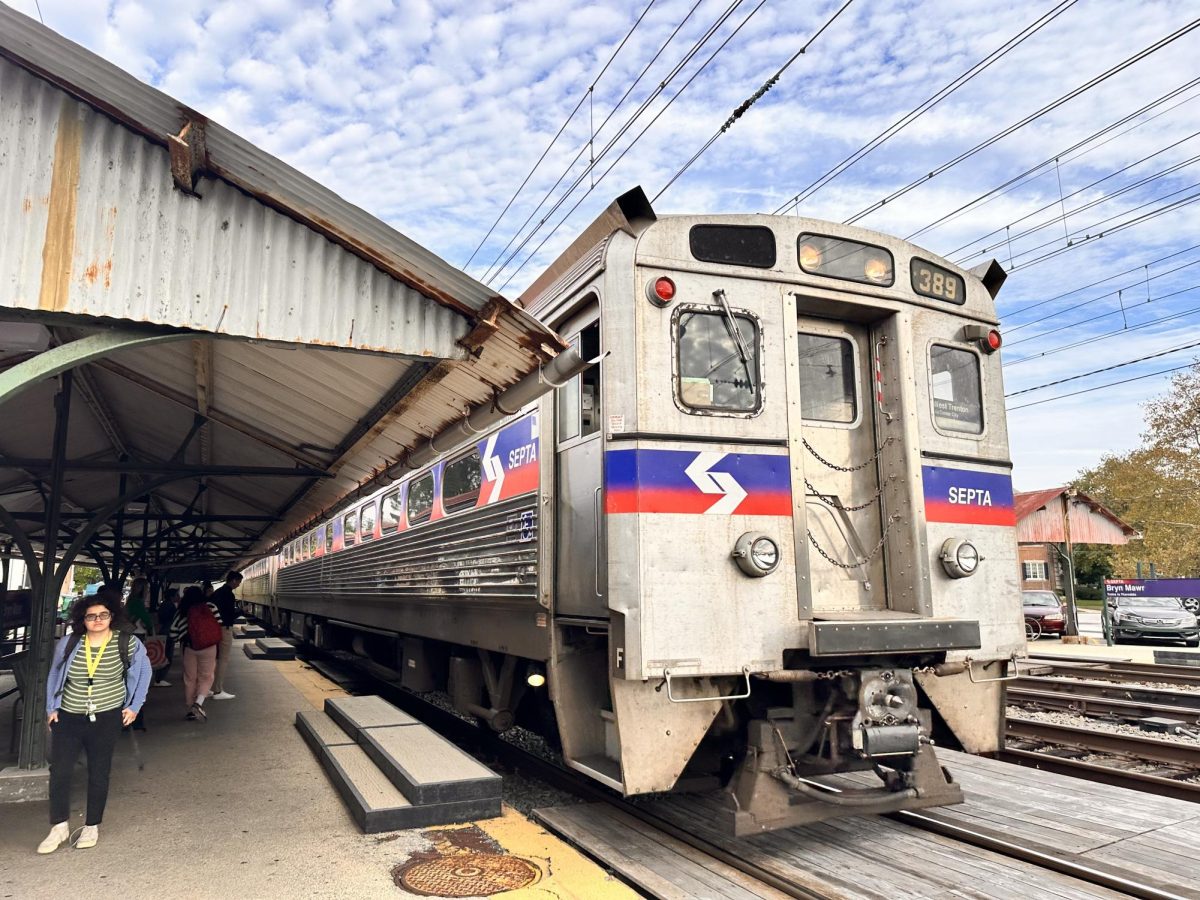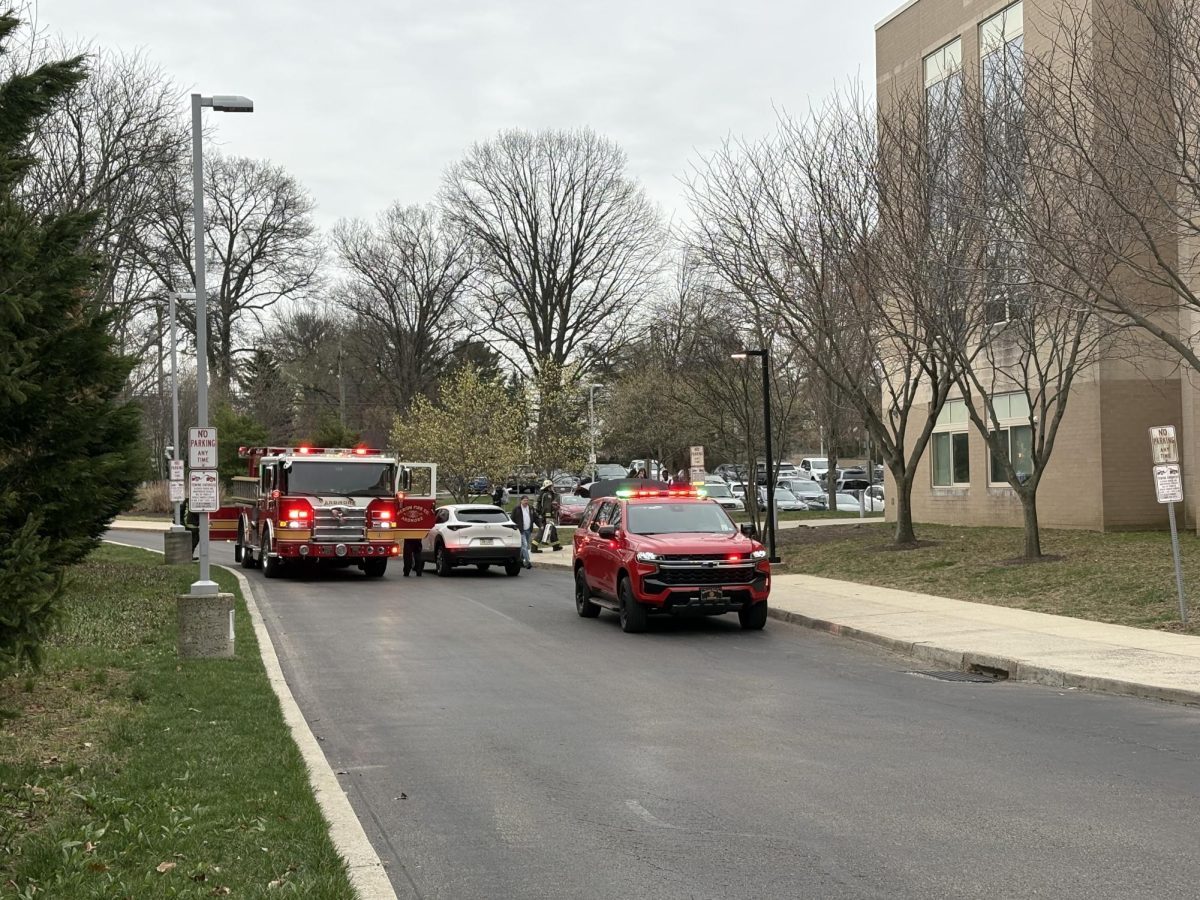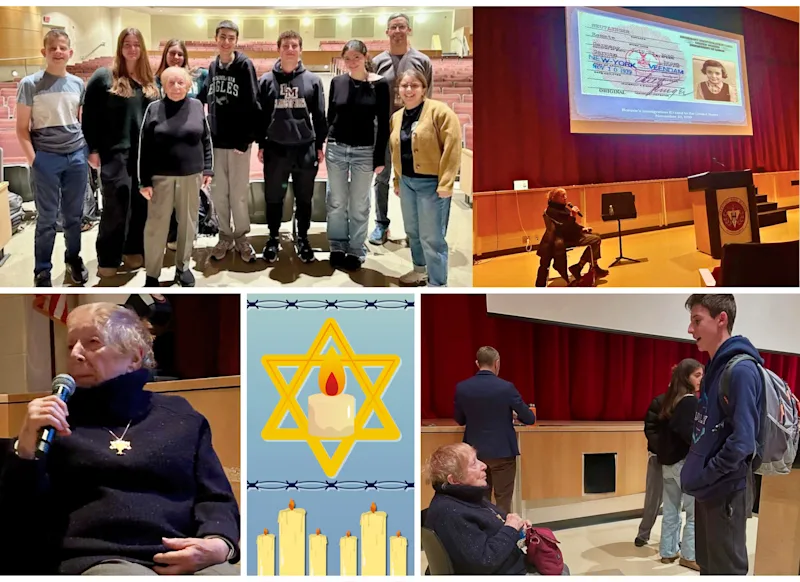
Q: Can you give us some insight into your background in education and life before LMSD?
A: I always knew I wanted to be a teacher, I knew I wanted to be a teacher from the time I was in kindergarten. Originally I was going to be an English teacher, and then after doing some student teaching at the secondary level, I went back and I did my elementary certification. So I taught elementary school and middle school. I’ve been a principal, a director of curriculum, assistant superintendent, and this is my third superintendency.
Q: How are you approaching your first few months as Superintendent?
A: Anytime you start a new job there’s a ton of stuff to learn. [I’ve been] getting to know not only the staff and the students but just generally the way the district functions. I’ve been doing a lot of Superintendent Meet & Greets, talking with a lot of students, talking with a lot of community members, attending meetings inside and outside the district and really understanding what it means to be in Lower Merion.
Q: Are there any major initiatives or projects you will begin working on in your first year at LMSD? Any others in the years ahead.
A: As I think everyone in our community knows, there’s the issue of fields for Black Rock Middle School and the efforts to preserve Oakwell. Right now, we’re trying to work to find common ground. There are many people that want to preserve Oakwell and there’s many people that want fields for Black Rock and so we’re working with different groups to come up with a solution that meets in the middle and finds common ground between those two groups.
Full Day Kindergarten is one of the things we’re planning on for the future, hoping to get that done for next school year. One of the things that I’m working on right now with secondary principals and counselors is creating student superintendent advisory teams. I’ll meet monthly with students to hear directly from students about your experiences in school. Those meetings aren’t necessarily run by me, I wouldn’t be bringing agendas to those meetings. It’s really an opportunity for students to share what’s going on directly with me.
Q: LMHS was designed for roughly 1200-1300 students. The student population is currently pushing 1,800 students. How are you approaching district enrollment growth and the large size of student populations?
A: One of the things we’re looking at is how we’re offering courses in each of the buildings [Harriton versus LM], and is there a way, without creating major upheaval, to strike a better balance. I don’t know that we’ve identified that better way right now but it is something that we’re continuing to look at and work on.
Q: How do you plan to work with district advocacy groups (Full Day K, Start Times, Oakwell)?
A: I think it’s really important that everyone feels that they’re heard. I look at my job as superintendent, not just to run the district, but to really listen to people and to help create conditions as we move forward that honor and support the vision of the district. A lot of my job is listening to different constituent groups and one of the things that you might hear me say is, “having your say doesn’t mean having your way.” But it’s really important for me to hear directly from these groups to help inform decisions. Many times, we’re actually able to take the input that we get from a group and actually make the decision that that group wants, and that’s great. On the flip side of that, there’s many times that we can’t make the decision that people want for any number of reasons.
Q: What do you see as the most significant challenges facing our district and how do you plan to address them?
A: I think the biggest thing is preparing students for a world that doesn’t even exist yet. We want you to be successful when you’re with us, but we also want you to be successful when you’re not with us. After high school, you’re going to decide to go into the workforce, military, or college and university. We want you to be successful in whatever you decide. That means we have to change the way we teach and the way you learn has to look a little bit different and has to be really nimble and change over time. We have to embrace true collaboration and communication because once you’re not in a school setting, your success is largely dependent on how you work with other people. That really has to be the focus of how we structure things moving forward.
Q: What are your opinions regarding Artificial Intelligence? As a follow up question: How do you see LM adapting to AI?
A: I think Artificial intelligence has great potential if you harness it the right way. I think our job collectively, teachers, administrators, and students, is to figure out how to harness the power of AI and use it to benefit what we do.
Q: In your opinion, what makes LMSD unique, and how will you ensure that its distinct qualities are preserved?
A: The passion for education here is unlike everything I’ve ever seen. When we talk about wanting to make sure that students are successful, when they’re with us and when they’re not, you really feel that here. Students are very serious about their education, parents and guardians are very serious, our school board is serious about it, our community is very serious about it. I’ve been in some communities where we say we’re really serious about it, but we don’t show it. Truly every decision made here is truly in the best interest of students and we’re going to continue on that path. I think what makes Lower Merion so special is that there is this real desire for everyone to be good at what they do. Students want to be good students, teachers want to be good teachers, administrators want to be good administrators.
Q: Lastly, what message would you like to convey to the students of LMSD as you begin your work as Superintendent?
A: I barely knew my principals and I never knew my Superintendent. I don’t want people to think of me as just the superintendent that you might see here or there. I want students to feel comfortable sharing experiences with me, telling me good things that are happening, sharing their concerns with me, and being able to have that two way dialogue.






